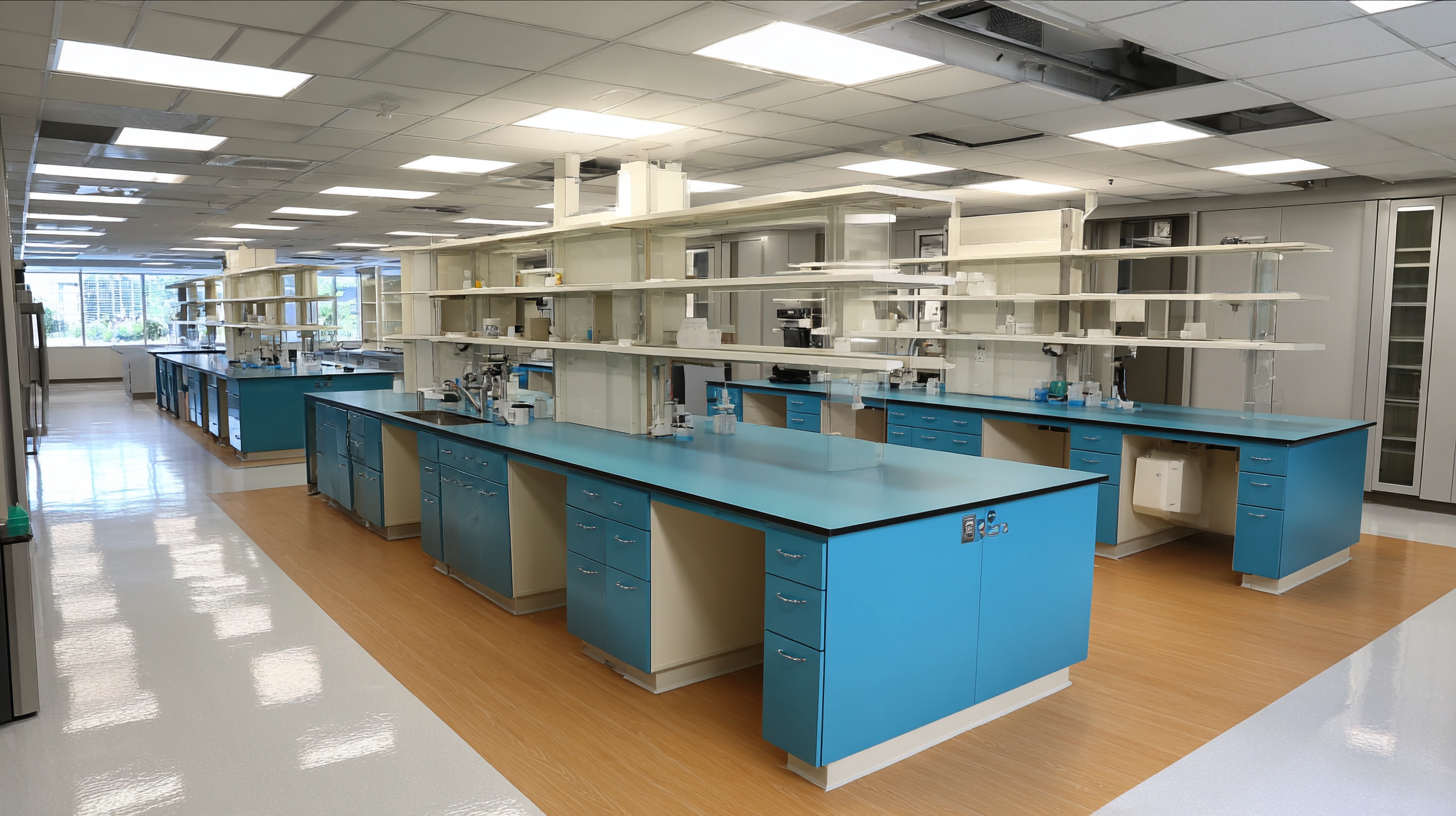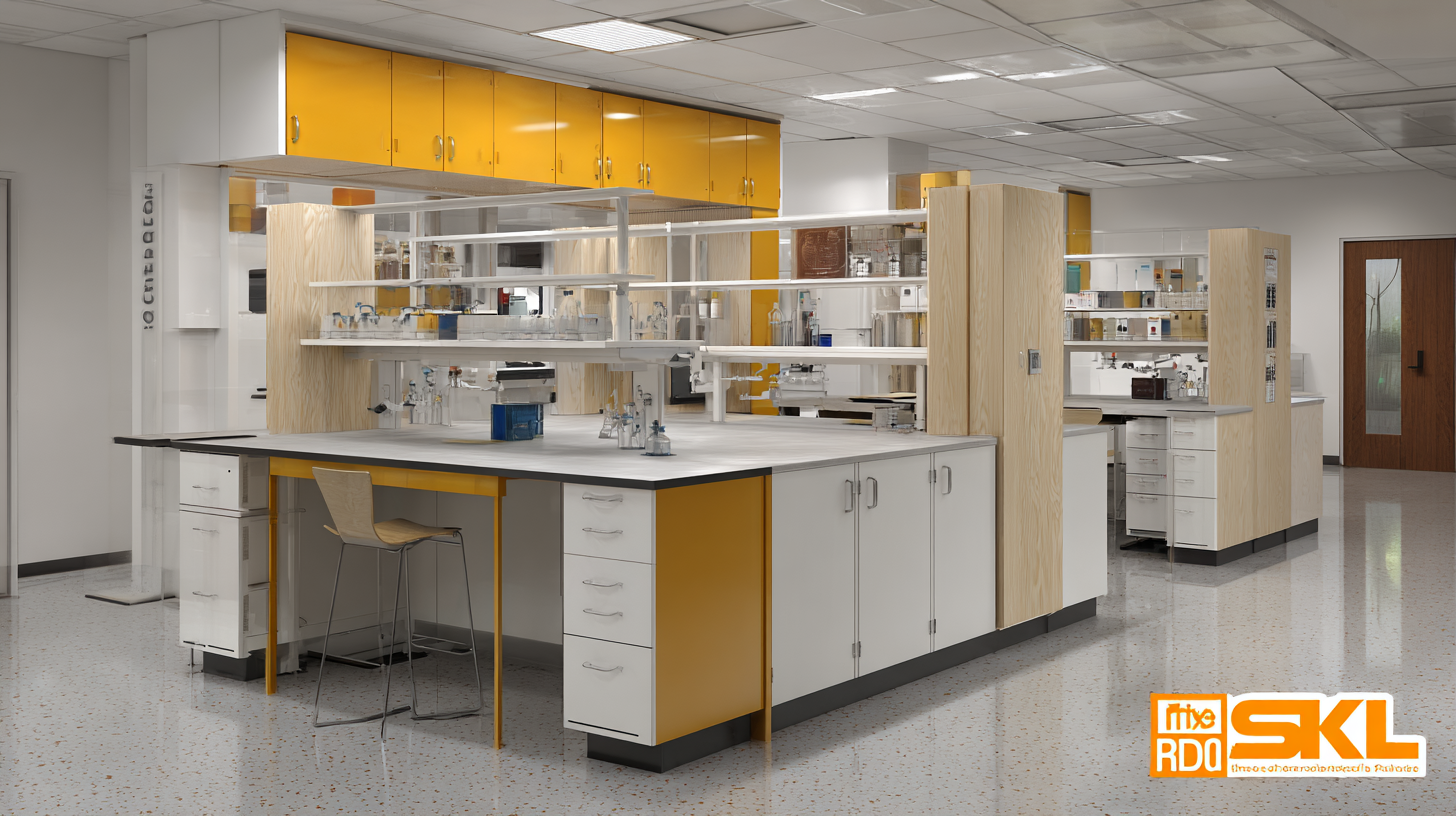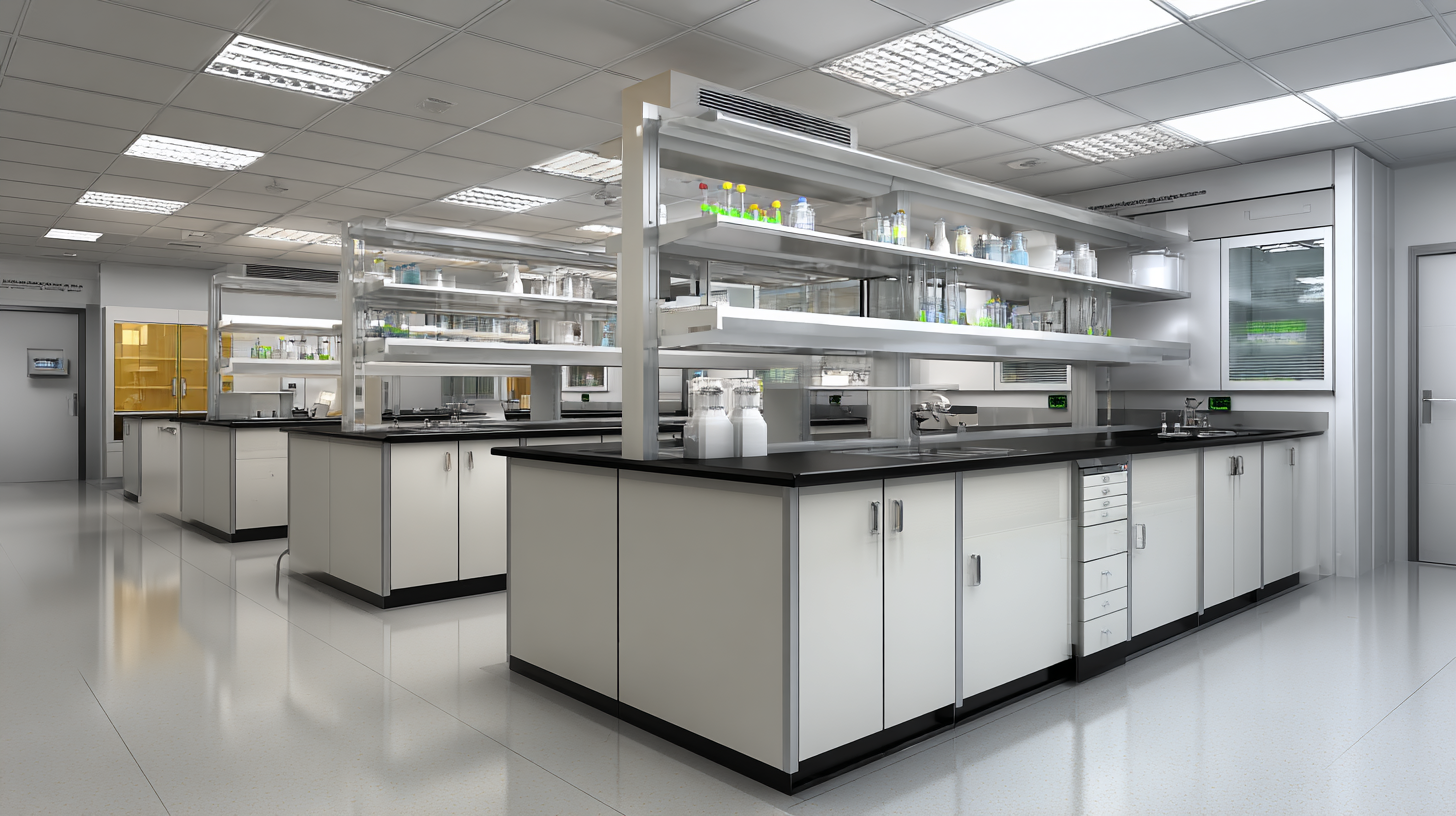In today’s rapidly evolving scientific landscape, the significance of investing in high-quality Modular Laboratory Furniture cannot be overstated. According to a recent report by BCC Research, the global laboratory furniture market is projected to reach $5.3 billion by 2026, highlighting a growing demand for innovative and adaptable solutions in laboratory design. This surge is particularly driven by the need for efficiency and flexibility in research environments, where modular systems allow for easy reconfiguration to meet changing needs. Additionally, choosing modular options can maximize ROI, as these systems often come with robust after-sales service and lower repair costs compared to traditional laboratory furniture. With an emphasis on durability and customization, Modular Laboratory Furniture stands as a strategic choice for laboratories aiming to optimize their investment while ensuring operational excellence.

Modular laboratory furniture has emerged as a critical component in enhancing the efficiency of laboratory spaces, thus driving significant returns on investment (ROI). According to a 2022 industry report by the Laboratory Furniture Manufacturers Association (LFMA), labs that invest in modular systems can achieve up to a 30% increase in space utilization. This is crucial for organizations looking to maximize their operational capacity without incurring substantial costs for new constructions. Modular furniture systems not only allow for flexible configurations but also facilitate the swift reconfiguration of laboratory spaces to meet evolving research needs.
Moreover, one of the standout advantages of modular laboratory furniture is the low cost of repair and maintenance compared to traditional furniture. A study conducted by the American Laboratory Supply Association (ALSA) highlighted that modular furniture systems incur repair costs that are approximately 20% lower than conventional fixed furniture. This cost efficiency stems from the readily available replacement parts and the ease of disassembly and reassembly associated with modular designs. Furthermore, the robust after-sales service provided by reputable manufacturers ensures that any issues are addressed promptly, minimizing downtime and keeping research activities uninterrupted. By leveraging modular laboratory furniture, organizations not only optimize their budget but also enhance their overall productivity.

When selecting modular laboratory furniture, several key features contribute significantly to cost efficiency. First and foremost, adaptability is a defining characteristic of modular designs. This flexibility allows laboratories to easily reconfigure their space as research needs evolve, minimizing the need for expensive overhauls or new furniture purchases. Additionally, the use of durable materials in modular furniture not only extends the lifespan of the products but also reduces future repair costs, ensuring that your investment pays off over time.
Another crucial feature is the emphasis on after-sales service. Reputable manufacturers offer robust support, including timely repairs and maintenance services, which further enhance the longevity of the furniture. This attention to after-sales service translates into savings on unexpected costs associated with breakdowns.
**Tips**: When choosing modular laboratory furniture, prioritize options that offer warranty coverage and ensure a responsive customer service team. Additionally, consider furniture systems that allow for easy upgrades and add-ons; this will help keep your laboratory on the cutting edge without incurring excessive expenses. Investing in high-quality, adaptable furniture today can lead to significant cost savings in the long run.
The role of after-sales service in enhancing laboratory operations cannot be overstated. According to a report by the International Laboratory Furniture Association (ILFA), over 70% of laboratory managers attribute their efficiency directly to the quality of support they receive after initial installation. Proper after-sales service ensures that laboratory furniture maintains its functionality and compliance with evolving safety standards, minimizing operational disruptions.
Moreover, low repair costs associated with high-quality modular laboratory furniture significantly contribute to a laboratory's return on investment (ROI). A study by Lab Manager indicates that facilities employing modular designs experience a 25% reduction in maintenance costs compared to traditional setup. These savings are often a result of straightforward repairs and the ability to easily reconfigure the layout, enhancing both functionality and workflow.
This strategic focus on after-sales support not only prolongs the lifespan of laboratory furniture but also maximizes the overall efficiency of laboratory operations.
Choosing the right modular laboratory furniture can significantly minimize repair costs, particularly when focusing on durable and low-maintenance solutions. The evolving landscape of maintenance services emphasizes the importance of selecting materials that can withstand wear and tear. Investing in furniture made from advanced, high-quality materials can ensure longevity and reduce the frequency of repairs, translating to considerable savings over time.

Tips for minimizing repair costs include regular evaluations of furniture conditions and investing in pieces that prioritize ease of cleaning and maintenance. For instance, opting for vinyl or other easy-to-clean surfaces can reduce upkeep efforts and preserve aesthetics. Additionally, consider furniture that comes with a robust warranty and reliable after-sales service.
Predictive maintenance techniques, akin to those used in ship repair and energy systems, can offer valuable insights into when furniture might require repairs. By leveraging technology to assess usage patterns and potential wear, laboratories can proactively address concerns before they escalate, further minimizing costs. Thus, integrating these strategies not only optimizes the lifespan of laboratory furniture but also enhances overall return on investment.
The integration of smart furniture into laboratory settings has become a game-changer, significantly impacting the return on investment (ROI). Real-life case studies exemplify how smart modular laboratory furniture can lead to enhanced functionality and efficiency, ultimately driving profitability.
For instance, one prominent research lab upgraded to modular furniture with built-in technology features, allowing for quick reconfiguration of space according to project needs. This adaptability not only reduced downtime but also improved workflow, leading to increased output and innovative research outcomes.
Another compelling example comes from a biotech startup that opted for sustainable modular furniture. The initial investment was offset by the long-term savings on repair costs and maintenance due to the high durability of the materials used. Further, the after-sales service provided by the furniture manufacturer ensured that any issues were addressed promptly, minimizing disruptions in daily operations.
As a result, the startup reported a significant increase in productivity and a rapid return on their furniture investment, highlighting the tangible benefits of selecting the right modular solutions in lab environments.
